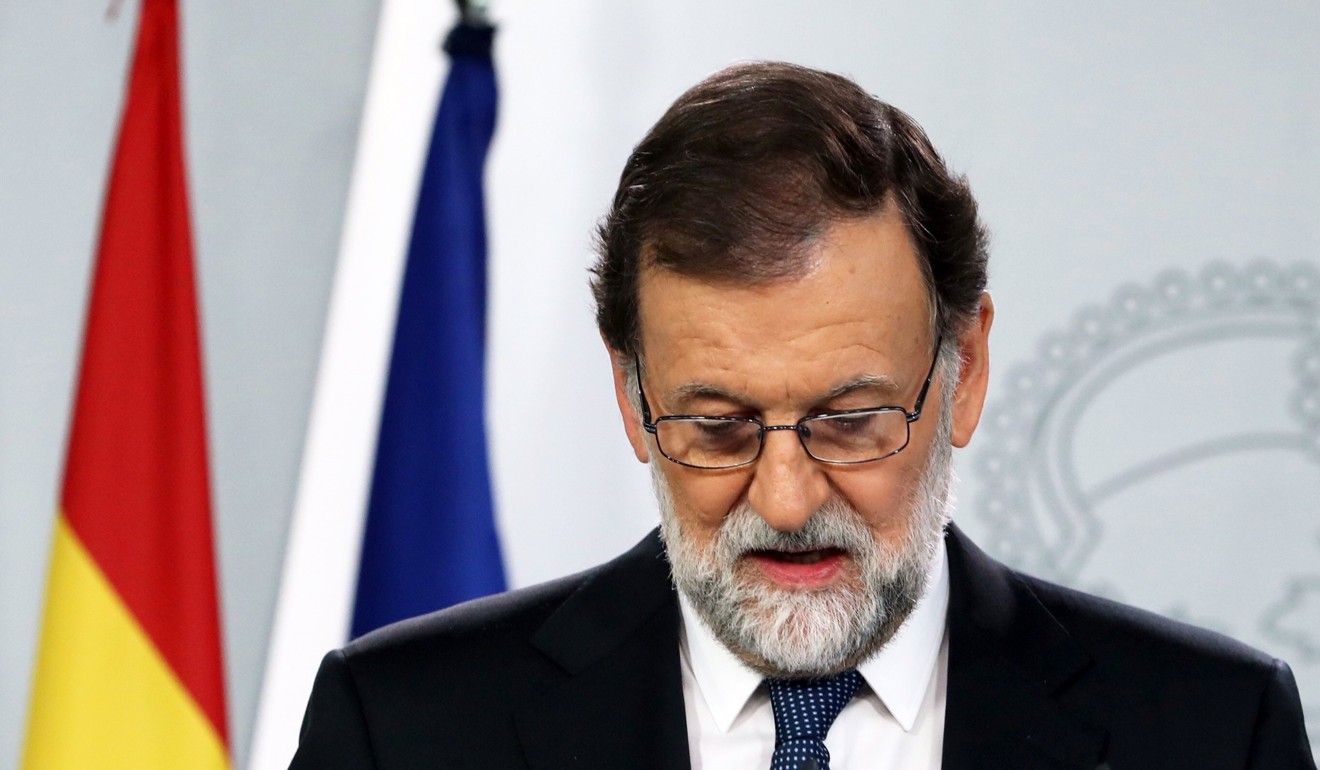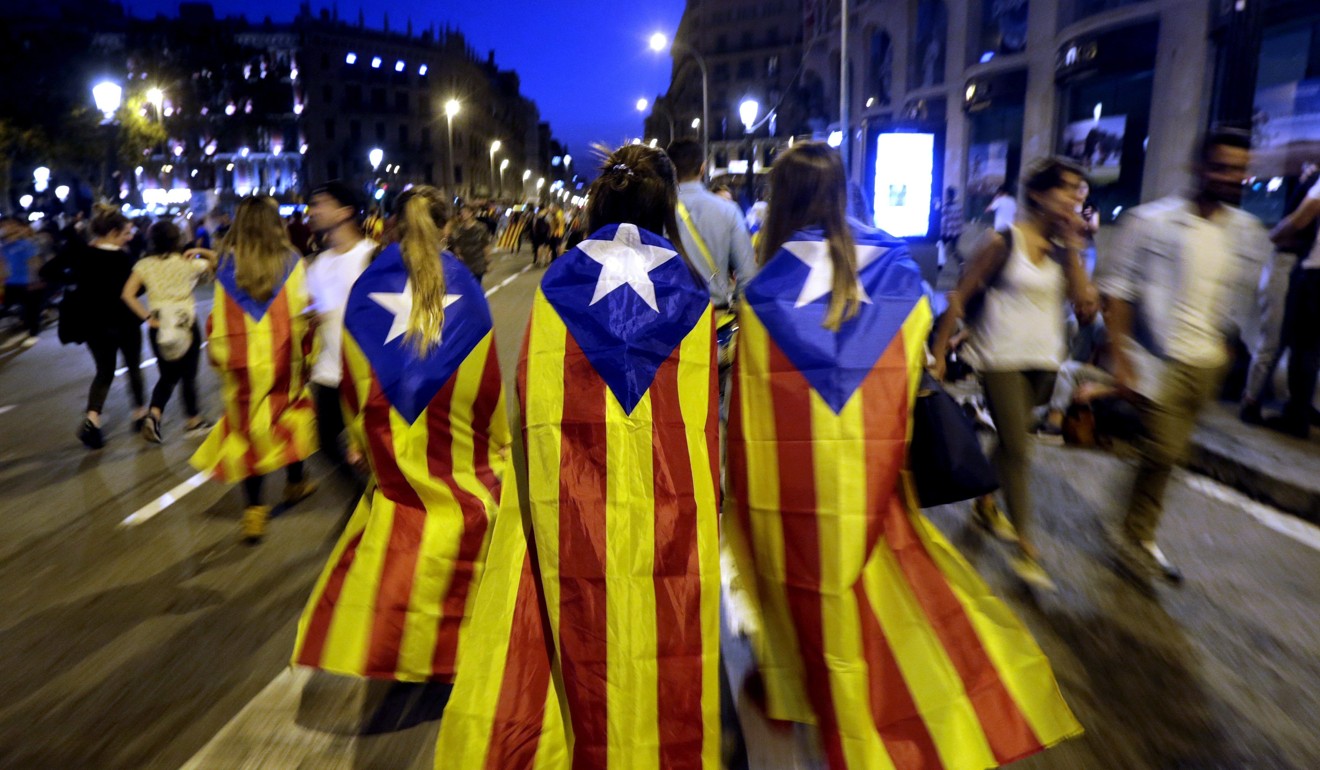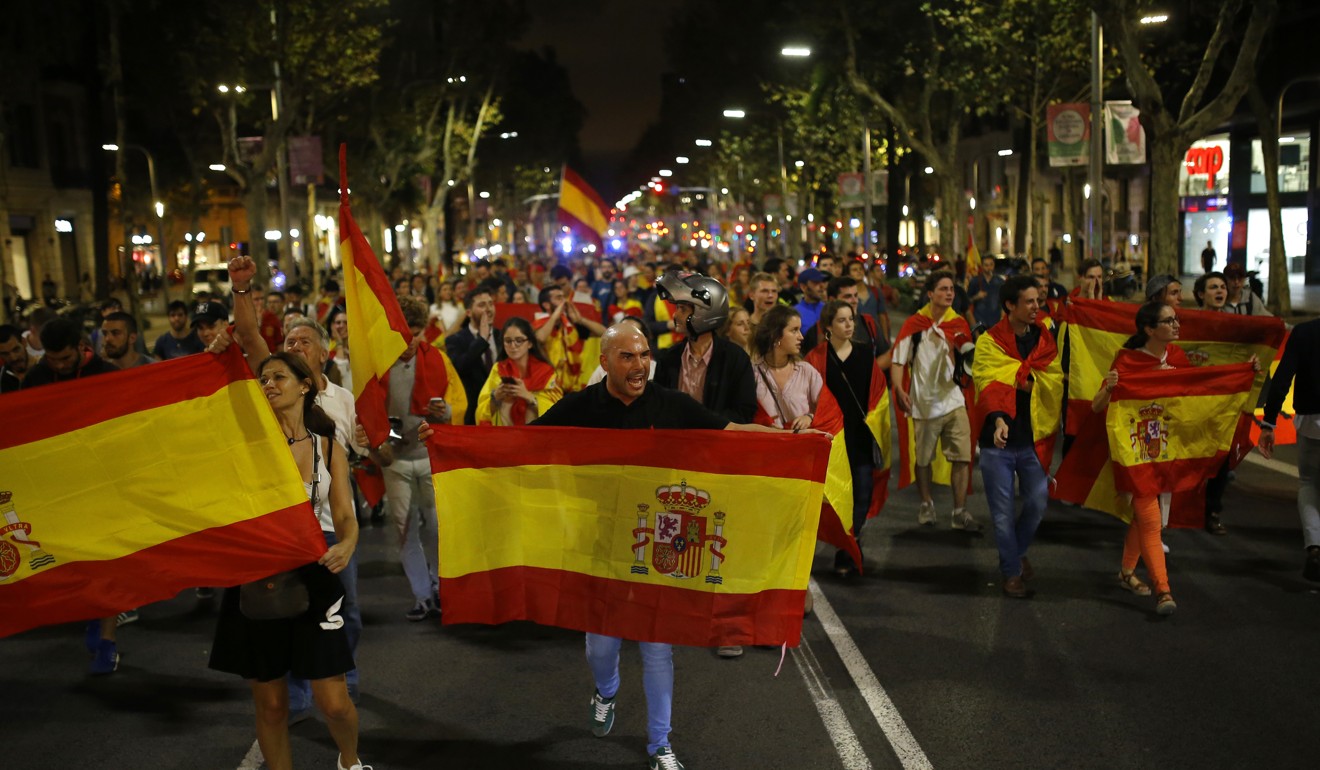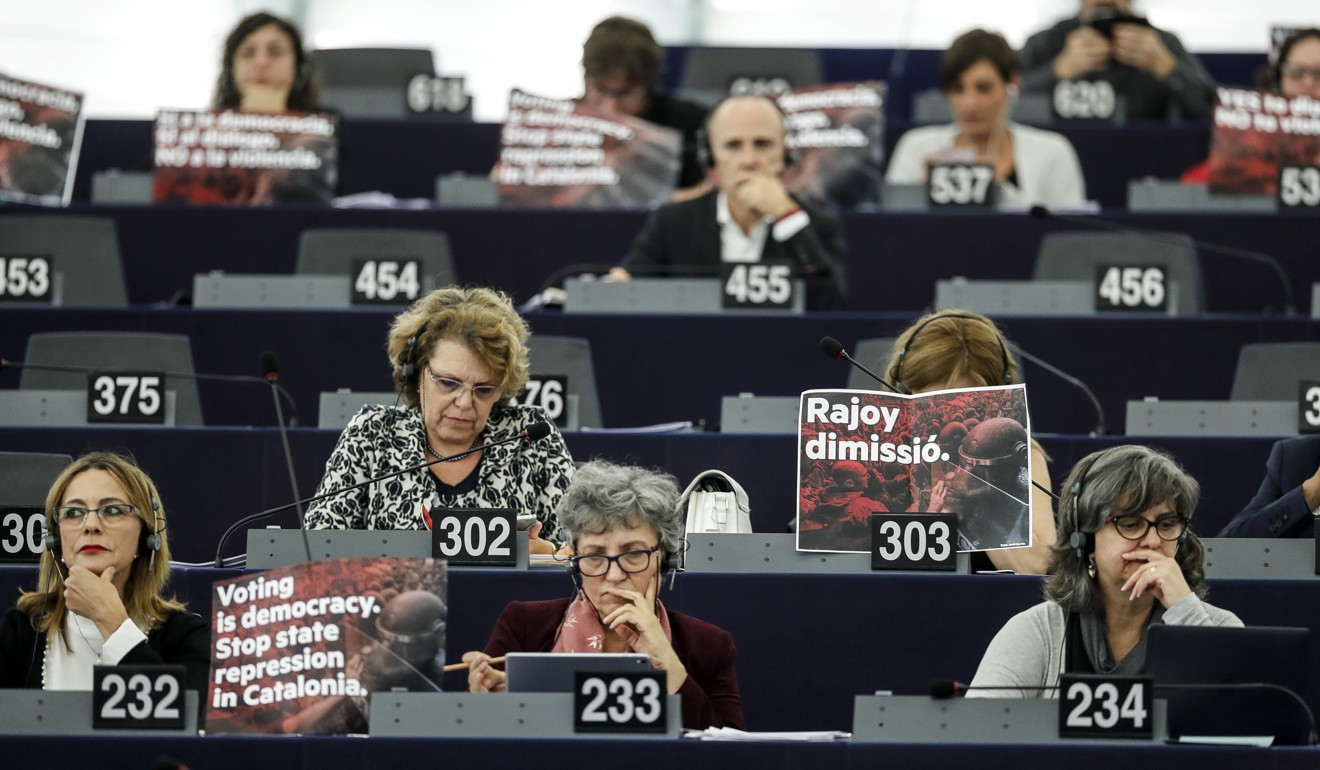
‘We will not accept blackmail’: Spain rejects mediation as Catalans plan to declare independence
Spain’s government is doubling down on its hardline stance in the wake of disputed referendum
Spain’s government defiantly rejected calls for mediation Wednesday over Catalonia’s push for independence, which the country’s king warned was endangering national stability.
As the European Union urged dialogue to ease the stand-off between separatists in the northeastern region and Madrid, Catalan leaders said they could unilaterally declare independence as early as Monday.
The tone of the crisis sharpened with Catalonia’s president denouncing the king’s intervention and Spain’s government rejecting any possible talks.

The dispute is Spain’s worst political crisis in decades and images of police beating unarmed Catalans taking part in Sunday’s banned independence vote sparked global concern.
Catalonia’s president Carles Puigdemont called the central government’s policies “disastrous” as the region’s leaders pushed on with its bid to break away from Spain, angering Madrid and raising the risk of further unrest.
After meetings in the regional parliament on Wednesday, pro-independence lawmakers called a full session next Monday to debate the final results of the vote.


King Felipe VI on Tuesday branded the independence drive illegal and undemocratic, throwing his weight behind the national government.
Catalan leaders “with their irresponsible conduct could put at risk the economic and social stability of Catalonia and all of Spain”, he said.
Accusing them of “disloyalty”, the king said that the state had to “ensure constitutional order”.
Puigdemont angrily rejected this, saying in a televised address: “The king has adopted the (national) government’s position and policies which have been disastrous with regard to Catalonia. He is deliberately ignoring millions of Catalans.”
He also accused the national government of failing to respond to proposals for mediation in the crisis.
A declaration of independence would intensify the conflict with the central government, which along with the national courts has branded the referendum illegal.

That would further enrage Catalan protesters, who say they are being repressed by Spain.
The king’s intervention could clear the way for Prime Minister Rajoy to act.
Hundreds of thousands of Catalans rallied in fury on Tuesday during a general strike over the police violence during the referendum.
Scores were injured on Sunday as police moved in en masse, beating voters and protesters as they lay on the ground and dragging some by the hair.
European Commission Vice President Frans Timmermans said Wednesday it was “time to talk, finding a way out of the impasse, working within the constitutional order of Spain”.
Speaking in an emergency debate in the European Parliament, he defended Madrid’s right to “the proportionate use of force” to keep the peace.
But the government statement late Wednesday said there could be no mediation unless Puigdemont backs down.
Adding to tensions, the courts on Wednesday placed Catalonia’s regional police chief Josep Lluis Trapero and three other suspects under investigation for an alleged “crime of sedition”.
The force has been accused of failing to rein in pro-independence protesters during disturbances in Barcelona last month.
A rich industrial region of 7.5 million people with their own language and cultural traditions, Catalonia accounts for a fifth of Spain’s economy.
Catalan claims for independence date back centuries but have surged during recent years of economic crisis.
The regional government said 42 per cent of the electorate voted on Sunday, with 90 per cent of those backing independence. But polls indicate Catalans are split.
The vote was held without regular electoral lists or observers.

.png?itok=arIb17P0)